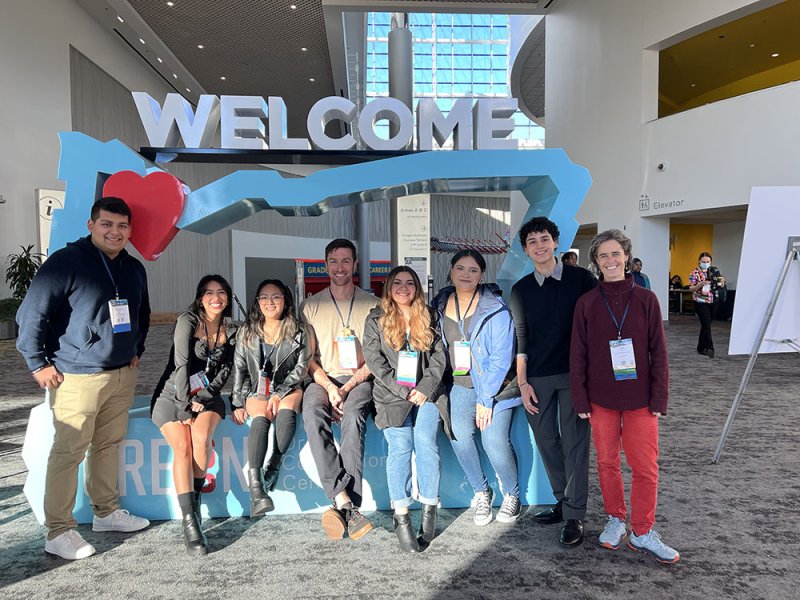WWU students, faculty attend SACNAS conference in Portland
Eight Western students represented the departments of biology, economics, political science and computer science at the Society for the Advancement of Chicanos/Hispanics and Native Americans in Science (SACNAS) National Diversity in STEM Conference, held at the end of fall quarter in Portland, Oregon.
SACNAS is an inclusive organization which focuses on building a supportive community to those pursuing a STEM major. Every year, Western sends students across the country — traveling anywhere from Hawaii to Puerto Rico — to SACNAS’ annual conference.
The conference also provides an opportunity for students to network with people across the world to learn about graduate schools and summer research programs that may be a good fit for them, SACNAS Advisor and Biology Department Instructor Dan van Hees said.
“The massive benefit [of conferences] for undergraduate students, especially those in SACNAS, is that they get to see their place in STEM,” he said. “Students get to see what collaboration is all about at an early stage in their scientific training.”
Collaboration and Community
Four students presented posters at this year’s conference, with chapter president Maribel Solano Alcantara’s poster awarded a Life Sciences, Cell/Molecular Biology Poster Presentation Award. She was also chosen for a travel award to attend a SACNAS leadership conference prior to the general conference.
Solano Alcantara’s poster presentation focused on research she conducted as a part of the Dahlberg Lab within Western’s Biology Department. Solano Alcantara studies a cellular pathway called the Endoplasmic Reticulum Associated Degradation, which is a quality-control process that removes misfolded proteins that can cause cellular stress. Accumulation of these proteins in humans has been associated with neurodegenerative diseases, including Alzheimer’s and Huntington’s disease. Solano Alcantara’s research investigated individual components of the pathway critical to maintaining cell and organismal health.
When students have a chance to experience a welcoming, professional meeting, I feel like it gives them a clearer sense that they are participants in science and research, not just observers.
Lina Dahlberg
SACNAS is an incubator for collaboration because of its dedication to inclusion, which is integral to science, said Lina Dahlberg, SACNAS advisor and professor of Biology.
“When students have a chance to experience a welcoming, professional meeting, I feel like it gives them a clearer sense that they are participants in science and research, not just observers,” said Dahlberg.
WWU student Meilin Scott, a junior in biology, said Western’s SACNAS chapter welcomed and invited her to bring all her identities to science at a time when she was struggling to feel like she belonged.
“SACNAS made me feel like I had a community that I could rely on for learning how to obtain the career I desire and by seeing other BIPOC scientists,” she said. “The energy at the SACNAS National Diversity in STEM Conference is exciting and warm. Every person I approached was friendly and many scientists with distinguished careers were willing to share their contact info to mentor students,” said Scott.
Solano Alcantara said she felt similarly.
“SACNAS has provided a sense of belonging that I hadn't experienced before. It is one of the few places where it is clear that my identity as a person and my culture are just as important as the work and science that I do,” she said. “I often hear SACNAS described as a labor of love, and I think it shows. As the chapter president this year, my own leadership style is very team based, and I love giving the rest of our group opportunities to learn and grow in their own skills and leadership abilities, too.”
All students interested in pursuing STEM are welcome to join SACNAS. For more information about the chapter, visit their page on the Western Involvement Network.
